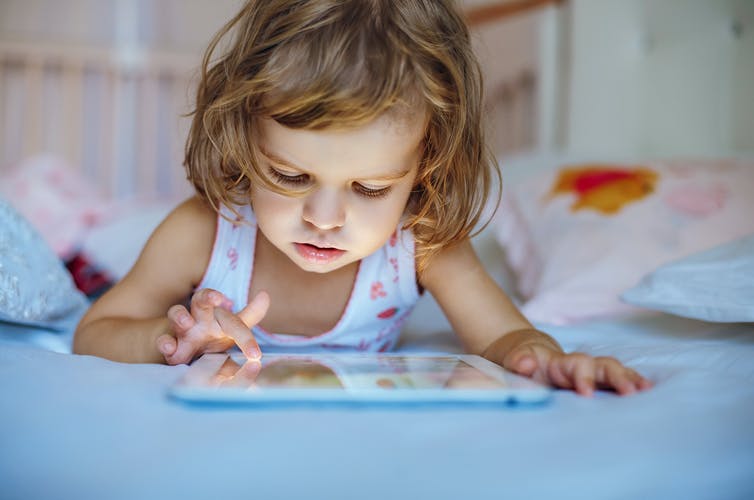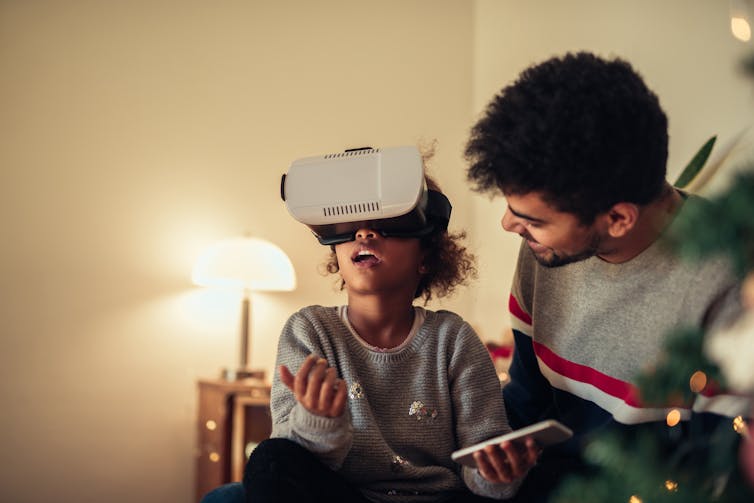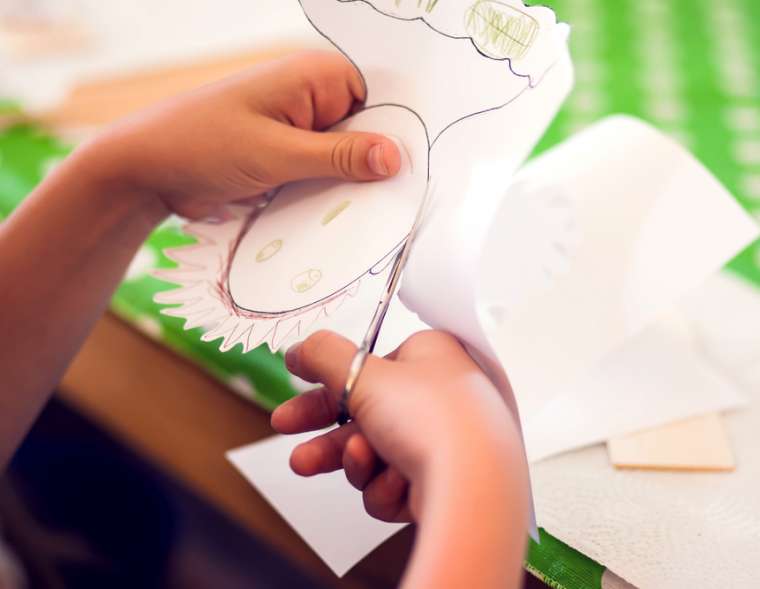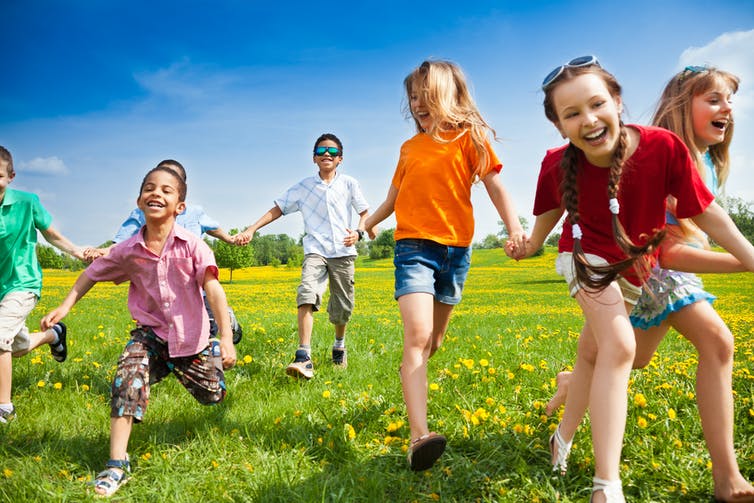
Digital Homeschooling: We Need to Rethink Our Worries About Children’s Screen Time
We’ve spent the last decade being anxious about the increasing amount of time young people spend in front of screens. However, in the last two months, children have been encouraged to dive into digital like never before. This has thrown up all kinds of questions about how to keep well online in a time where being outside and together in physical space has been impossible.
Parents have sought to employ digital platforms any way they can to ensure their children remain intimately connected to their friends, fearful of the time they are missing socialising, playing, learning and sharing.
Where previously we may have been sceptical of digital learning compared to face-to-face experiences, it has become central to children’s homeschooling and a great deal of positives have come out of it. In addition to work set by schools, children in the UK and across the world have engaged with new teachers. Many have been exercising with Joe Wicks or doing maths with Carol Vorderman.
These digital learning experiences have been the best option for children under lockdown, yet this is hard to reconcile with our previous worries about limiting screen time. Seemingly overnight, even organisations that had warned us about being in digital space too much now advocate their use.
The World Health Organization, for example, has been working with gaming companies as a way of promoting key COVID-19 health messages. This comes less than two years after it identified excessive gaming as a possible health disorder. While this partnership is far from a general policy on promoting gaming for health, it has sent the message that gaming is an important way to maintain mental health during a long period of social isolation.
With social distancing and homeschooling likely to be a feature of children’s lives for some time yet, we need new ways to think about the time young people spend in digital space. Some helpful guidance can be found in a 2019 report published by the Royal College of Paediatrics and Public Health, which outlined guidance for children’s screen use.
The report did not specify putting time limits on screen time, nor did it say that certain kinds of screen exposure are worse or better than others. Instead, it invited families to talk about their collective screen health together and discuss when it seemed to be making family time worse. The report invited families to ask themselves four questions:
- Is screen time in your household controlled?
- Does screen use interfere with what your family wants to do?
- Does screen use interfere with sleep?
- Are you able to control snacking during screen time?
Answering these questions in 2020 feels like a very different exercise, but they’re still a really great place to start when helping children – and adults – through this difficult period.
The impact of extra screen time
One of the big challenges for researchers right now is understanding the impact of the extra screen time young people are experiencing during lockdown. We have no precedents for such conditions and most of the research on screen time is still in the context of a life where a big part of a child’s day is within a school setting.

For this reason, we need more data to understand how the extra screen time is affecting young people, but it’s reasonable to conclude that it all depends how that screen time is orchestrated. For example, being in front of a Joe Wicks workout and doing exercise is likely a very different category of experience than being on social media.
This is why active gaming and even virtual reality experiences could usher in an entirely new way of thinking about the screen and its impact on our lives. We already have evidence that active gaming experiences can promote physical wellbeing.
It’s also worth thinking about how this time offers an opportunity to completely rethink what and how we learn. Children can access lessons and courses from all over the world, which provides a chance for them to engage with children and teachers from other countries. Even astronauts on the International Space Station have been reading stories to children.
Through all of this, it’s crucial to remember that we’re not simply homeschooling or working from home, but trying hard to do these things in extraordinary times. In the rush to maintain standards and normality, we need to remember that a completely different approach is perfectly okay right now.![]()
Andy Miah, Chair in Science Communication & Future Media, University of Salford
This article is republished from The Conversation under a Creative Commons license. Read the original article.


